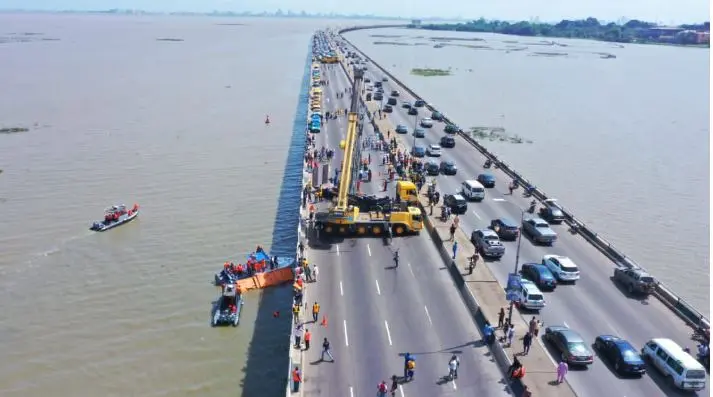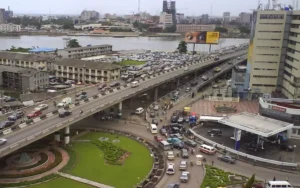
The Lagos State Government has declared that the Third Mainland Bridge will be fully operational from April 4, 2024, after the completion of significant repair works.
This update was conveyed in a statement released on Saturday by Oluwaseun Osiyemi, the Lagos State Commissioner of Transportation.
In his statement, Commissioner Osiyemi expressed gratitude to the residents of Lagos for their patience and cooperation during the repair period and expressed optimism for more efficient travel on the bridge.
The statement read: “Dear Lagos Residents, “We’re pleased to share that the Third Mainland Bridge will resume full operations on April 4th, 2024, following extensive repairs.
“We sincerely thank you for your patience and cooperation, and we look forward to even smoother travels ahead.” https://twitter.com/gboyegaakosile/status/1774057893689528404
Over recent months, the Third Mainland Bridge has undergone intermittent closures, ranging from days to weeks, to facilitate urgent repairs across various sections. These closures have necessitated the use of alternate routes by motorists during the repair periods.
Despite the Lagos State Government’s announcement that the bridge will fully reopen on April 4, 2024, this does not signify the completion of all required rehabilitations to restore the bridge to its optimal condition.
A statement from the Federal Minister of Works, David Umahi, advocating for the National Assembly to declare a State of Emergency on the Third Mainland Bridge. This urgent call aims to expedite crucial underwater repair works and avert further degradation.
Umahi identified illegal sand mining, natural underwater currents, and corrosion of steel casings as primary factors contributing to the bridge’s structural decline.
Furthermore, the minister disclosed that the Federal Government has already allocated N6 billion to Julius Berger Nigeria PLC, the firm tasked with the bridge’s rehabilitation, as part of an overall N21 billion earmarked for the project.
Umahi cautioned that delaying the comprehensive repair efforts could escalate the eventual reconstruction costs to an estimated N6 trillion.








